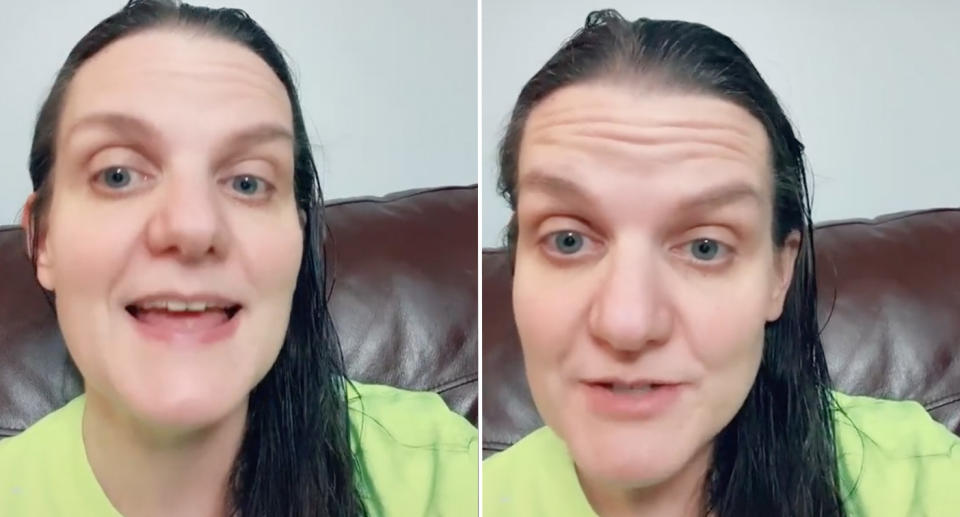'Never able to retire': Mum's $4m bill highlights widespread issue
A mum’s response to a TikTok trend about the cost of having children has gone viral after it highlighted an expensive and widespread issue in the US.
Earlier this week, a TikTok user said she had finally paid off her childbirth bill for her now two-year-old daughter and asked other mums how long it took them.
The video trend quickly took off, with thousands of woman across the world detailing their own childbirths.
However, Georgia theatre teacher Kimberly Guinn’s response in particular raised millions of eyebrows.
The 42-year-old said her triplet daughters were born at 31 weeks premature and she had to spend two weeks in the hospital before they were born because they had twin transfusion syndrome and one of them was not receiving enough nutrients.

“They spent 62, 68 and 82 days in the NICU [Neonatal Intensive Care Unit] respectively. And when they came home my final bill was US$1.23 million (AUD$1.6m) each for them, not including my own,” she said.
“After insurance I ended up owing about US$65,000 so I cashed by 401k (pension) so I could pay for that.
“And so yeah I’m a widow because my husband was killed and I will never ever, ever, ever be able to retire in my life,” she said.
The health insurance shortfalls
Ms Guinn’s video was quickly shared and has more than 13 million views.
In a series of following explainer TikTok videos, she said she and her husband Frank didn’t qualify for any financial assistance at the time because they were both employed.
She’d only been teaching for eight years when she removed the US$68,000 saved so far in her pension to cover the US$65,000 bill and her own hospital fees.
“My case is an outlier in American healthcare and that is because my triplets were transferred from one NICU to another,” Ms Guinn said.
“The second NICU took our insurance but the specialists and doctors that bill independently did not.
“That is why my bill was so high. My insurance covered everything that was in network fairly decently but they didn’t cover the out of network stuff.”
Tragic end after 29-year-old finds 'painless' marks on his body
'Bubble boy', 3, tragically dies after being unable to return to home state
Girl, 12, traumatised after bug burrows into her ear for two days
After the incredible response to her exorbitant childbirth bill, the mum of three was inundated with questions and offers to help her financially.
She declined any donations and instead turned them to other organisations that help women in similar situations.
The 42-year-old, whose firefighter husband was hit and killed by an unlicensed driver in 2014 while he was training for a triathlon, said she was blessed to still have a job.
She also said she was lucky her community helped raise college tuition fees for all of her daughters following Frank’s sudden death.

Why is US healthcare so expensive?
Experts attributed the country’s infamously high medical costs to a fragmented “for-profit insurance system” that is mostly administered by private companies with a lack of government regulation, according to an article published by Today in September.
It has long been said just one medical bill could send someone into bankruptcy – and it concerns Americans, with almost one in three worried about being able to afford healthcare, according to an NBC survey.
Carmen Balber, executive director of Consumer Watchdog which advocate for health insurance reform, told Today that individuals must pay for their own care even if their employer contributes to it.
Because there is an underlying motive to make money, it can have a ripple effect on prices, she said.
“Lots of other countries have some element of private something, but there is that baseline understanding that health care is a right, not a privilege," Balber said.
Do you have a story tip? Email: newsroomau@yahoonews.com.
You can also follow us on Facebook, Instagram and Twitter and download the Yahoo News app from the App Store or Google Play.

 Yahoo Finance
Yahoo Finance 
